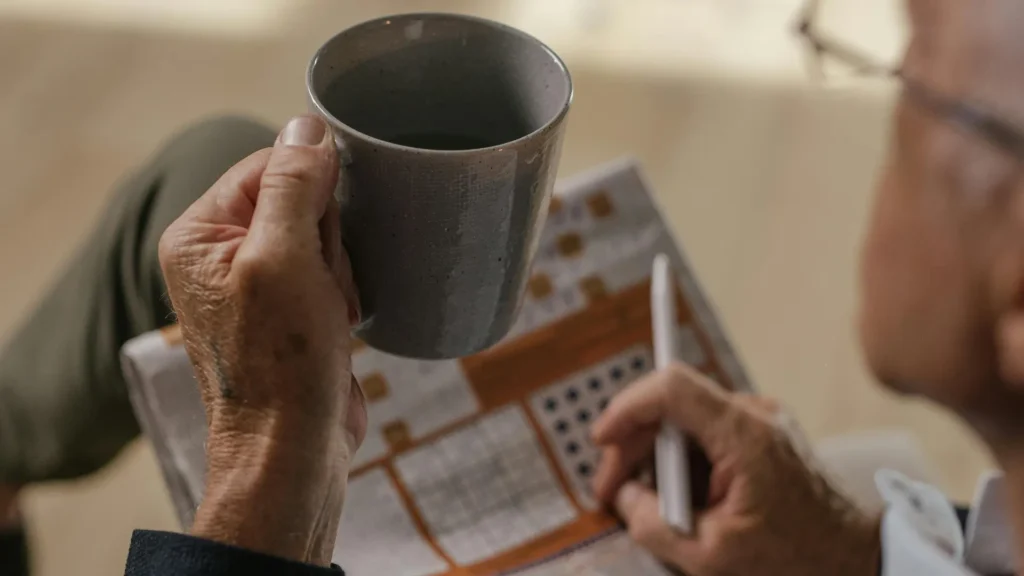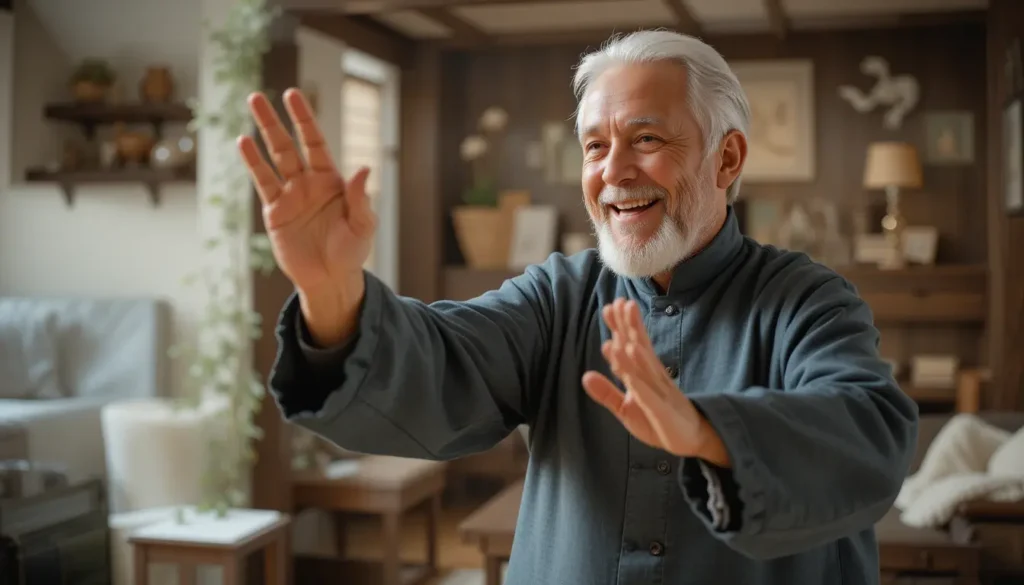Have you walked into a room and forgotten why? Or paused in the middle of a sentence because a word slipped away? These moments can feel scary. They make you wonder if your brain is slowing down.
Here’s the truth: your brain is not broken. It just needs exercise. Just like your muscles get weak without movement, your brain also slows down if you don’t challenge it daily.
Many older adults feel frustrated when they forget things. They worry it’s a sign of something bigger. But in most cases, it’s not. It’s simply the result of a brain that’s not getting enough activity.
That’s why brain-training games matter. They give your brain something new to focus on every day. They push your memory, attention, and thinking skills — and they do it in a way that feels fun, not hard.
This article will give you the full guide. You’ll learn why brain training works, what games to play, and how to turn it into a daily habit. This isn’t guesswork. It’s real, proven help for your brain.
Why Your Brain Needs Daily Exercise After 60
As you age, your brain changes. Some parts shrink a little. Blood flow may slow down. Connections between brain cells might weaken. These changes can lead to slower thinking or memory slips.
But here’s the good part: your brain is still flexible. That means it can grow new connections. It can form new paths. But for that to happen, you must challenge it.
Watching TV or doing the same routine each day won’t help your brain stay sharp. It needs tasks that are new and slightly hard. That’s where brain-training games come in.
Brain-training games give your brain just enough challenge. Not too easy. Not too hard. They make your brain work in ways that keep it strong and flexible.
Think about the skills you use daily: remembering names, following conversations, making choices, staying focused. These are all things that brain games help improve. When you train these skills, you do better in everyday life.
Many seniors want to stay independent. They want to drive, cook, handle money, and make decisions on their own. Keeping the brain sharp is key to that. Brain-training games are one of the best tools to help you do it.
You don’t need hours each day. Just 10 to 15 minutes is enough. What matters is doing it daily. A few focused minutes can keep your brain strong for years to come.
What Brain Skills Do These Games Improve?
Not all parts of your brain work the same. Brain-training games focus on the areas that help you most in daily life. Let’s look at each one.
1. Memory
Memory is your brain’s storage center. It helps you remember faces, places, tasks, and dates. Memory games keep your short-term and long-term memory active. They help reduce those “Where did I put that?” moments.
2. Attention
Attention helps you focus. It lets you block out noise and stay on one task. Games that need quick reactions or tracking help you build better attention. That means fewer mistakes and better focus on everyday tasks.
3. Speed of Thinking
As we age, our brains may work more slowly. This affects how fast we understand things or respond. Games that require fast choices help speed this up again. That helps in conversations, reading signs, or reacting in emergencies.
4. Problem-Solving
Games that ask you to solve puzzles improve logic. They also help with planning and thinking through steps. This helps when you cook a new recipe, manage money, or deal with a change in plans.
5. Word and Language Skills
Games that involve words build your vocabulary and recall. This helps you speak more clearly and find the right words faster. It also helps in writing, reading, and talking with others.
These brain areas work together. When you train one, it supports the others. So a single game may help more than one skill. That’s why the best brain games work across many areas at once.
Best Brain-Training Games That Actually Work
Let’s now look at the best brain-training games for older adults. These are not random. They have been shown to improve brain function. They are also easy to learn and fun to play.
1. Sudoku
Sudoku is a number puzzle. You don’t need math. You just place numbers 1–9 in boxes without repeating them. It trains your focus, memory, and problem-solving. Start with simple puzzles and move up as you improve.
2. Crossword Puzzles
Crosswords challenge your memory and vocabulary. They also help recall old knowledge. If a clue is hard, it pushes your brain to dig deep. It’s great for your word center.
3. Memory Match Cards
These cards show pictures, then flip over. Your job is to find matches. This helps with short-term memory and focus. You can play with real cards or on a screen.
4. Spot the Difference
This game shows two pictures that look alike. Your task is to find what’s different. This sharpens your attention and visual memory.
5. Word Search
Word search puzzles train your eye and brain to scan quickly. They improve speed and pattern spotting. They also help you spot words faster in daily life.
6. Brain-Training Apps
Apps like Lumosity, Peak, Elevate, and Brainwell offer daily challenges. They mix memory, logic, speed, and language tasks. The best part? They adjust to your skill level. Most can be played in just 10–15 minutes a day.
7. Jigsaw Puzzles
Jigsaws help with spatial thinking, memory, and patience. The act of searching and placing each piece boosts your brain’s problem-solving and visual tracking.
8. Trivia Quizzes
Trivia questions test your memory and thinking. Pick topics you enjoy — history, movies, health, music. You’ll recall old facts while learning new ones.
9. Simple Math Challenges
Fill-in-the-blank math puzzles improve logic and quick thinking. Start with basic sums. Then try subtraction, patterns, and sequences.
10. Reaction Speed Games
Games where you tap when a shape pops up train your reaction time. This helps with driving, walking safely, and quick decisions.
Pick the games you enjoy. Rotate between them so your brain keeps getting new challenges. You’ll train more brain areas this way.
How to Make Brain Training a Daily Habit
Many people start strong, then stop. The key is to make brain training simple, fun, and part of your routine. Here’s how.
You don’t need to play all the games. Pick one or two. Start with 10 minutes each day. If you enjoy it, your brain will want to come back.
Pick a time that works.Mornings are good for many people. Others like to relax with a game in the evening. Choose a time you can repeat daily. Make it part of your routine.
Keep it fun, not hard. If a game feels too hard, stop and try another. It should be a little challenging — not frustrating. The goal is daily fun, not stress.
Track what you do. Use a small notebook or calendar. Write down what game you played and how long. Seeing your progress will make you feel good. It will also remind you to stay on track.
Use apps with reminders. If you use a phone or tablet, many apps send daily reminders. They also track your scores. This helps you see how your brain improves.
Play with others.Invite a friend or family member to join. You can solve puzzles together or quiz each other. This adds fun and keeps you committed.
Add variety. Don’t play the same game each day. Rotate between memory, speed, and language games. This keeps it fresh and works more parts of your brain.
Don’t skip days. It’s easy to say, “I’ll play tomorrow.” But each skipped day breaks the habit. Try to play every day. If you miss one, get back on track the next day.
Once brain training becomes a habit, you won’t want to skip it. You’ll enjoy how it makes you feel — more clear, more focused, and more confident.
The Real Payoff: A Sharper, More Confident You
After a few weeks of daily brain training, most people notice something. They remember names more easily. They feel more alert during conversations. They stay focused longer.
This change doesn’t happen all at once. But it grows. With each day of brain training, your mind gets sharper. You react quicker. You solve problems faster.
That sharpness brings confidence. You don’t panic when you forget a word. You feel stronger in daily life. That makes a big difference in how you live and how you feel.
Some seniors say they feel “younger.” Not in age, but in energy. They feel more alive, more engaged, more ready to enjoy each day.
This is the real reward of brain training. It’s not just mental sharpness. It’s freedom. It’s joy. It’s the chance to live fully at any age.
You don’t need a strong memory to begin brain training. You just need to start. One simple game a day can change how your brain works.
Don’t wait until your memory slips more. Don’t wait until you feel foggy. Start today.
Choose a game. Set a timer for ten minutes. Focus, enjoy, and repeat tomorrow.
You have control over how your brain ages. Use it.




